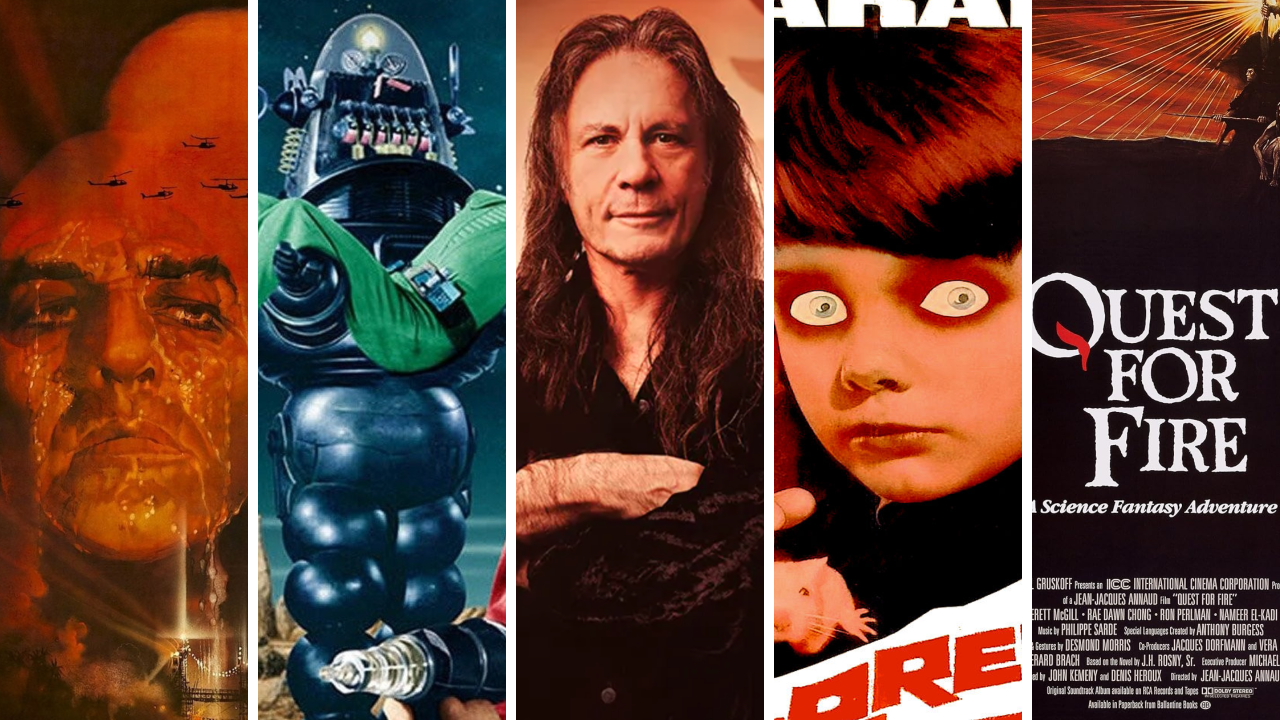Steve Harris must be the most demonstrative cineaste in metal. Even the name Iron Maiden came to him via 1938 swashbuckler The Man In The Iron Mask, and the band’s cinematic influence has held firm from 70s jams through to latest album Senjutsu.
We know how great the tunes are, but what about the flicks themselves? We’re not including films with titles simply borrowed for unrelated songs: From Here To Eternity, Heaven Can Wait, The Wicker Man and even Aces High need not apply. So, grab the popcorn and settle in for this bespoke film season, assessing every ‘Maiden movie’ on its own merits.

The Phantom Of The Opera
Song: Phantom Of The Opera (Iron Maiden, 1980)
Gaston Leroux’s novel about a masked ghoul with a crush on an opera singer inspired three worthy adaptations, each regularly popping up as TV midnight movies throughout the 70s. Universal’s 1925 silent original remains definitive, 1943’s Technicolor remake was watchable but inessential, while Hammer’s 1962 treatment brought a romantic opulence – and more blood.
Forbidden Planet (1956)
Song: Out Of The Silent Planet (Brave New World, 2000)
Bruce Dickinson confirmed the influence of this sci-fi classic, and the set-up of the desolate world ravaged by demons of man’s creation is evoked explicitly in the lyrics. Based on Shakespeare’s The Tempest, the film’s a legitimately historically important one, more innovative, visionary and thought-provoking than the average 50s B-movie with robots.
Run Silent Run Deep (1958)
Song: Run Silent Run Deep (No Prayer For The Dying, 1990)
Like the song, this classic World War II submarine thriller (a masterclass of claustrophobic tension and procedural accuracy) is an underrated, atmospheric gem, Clark Gable bristling with vengeful intent. Perhaps significantly, this mainstay of rainy afternoon TV was screened in February 1990, during No Prayer For The Dying’s creative process.
The Loneliness Of The Long Distance Runner (1962)
Song: The Loneliness Of The Long Distance Runner (Somewhere In Time, 1986)
Tom Courtenay brings a gritty intensity to this very British tale of a disadvantaged borstal boy pitted against posh kids in a cross-country race. Reflecting on his troubled life while straining to push ahead, deep emotions are stirred but never indulged by the film’s stark, impassive minimalism.
The Longest Day (1962)
Song: The Longest Day (A Matter Of Life And Death, 2006)
Every leading actor of the era – John Wayne, Christopher Lee, Robert Mitchum, Sean Connery, Leslie Phillips – turned up for this monumental, absorbing D-Day epic. “The waaater is red with the blooood of the dead,” noted Bruce in the 2006 song, and although the film is black and white, it still conveys a horrible realism.
Children Of The Damned (1963)
Song: Children Of The Damned (The Number Of The Beast, 1982)
A nominal followup to 1960’s Village Of The Damned, the instigating motherlode of creepy kid movies. Village… is the superior atmospheric chiller, but Children… has a very different feel, introducing a Military Industrial Complex backdrop, even provoking sympathy for the spooky alien nippers in the horrific climax (“Melting his face! Screaming in pain...”).
Charge Of The Light Brigade (1968)
Song: The Trooper (Piece Of Mind, 1983)
Errol Flynn’s 1938 original was used in The Trooper’s video, but Steve was 12 when this heavy-handedly satirical, countercultural version emerged – then the most expensive British film ever made. The song’s lyrics play out in the film’s harrowing climax, where you can almost smell the acrid smoke and horse’s breath.
Where Eagles Dare (1968)
Song: Where Eagles Dare (Piece Of Mind, 1983)
“If you’ve got a problem, Clint Eastwood will solve it,” said Bruce introducing the song live, and Clint’s rugged insouciance is at full pelt opposite a maxi-strength Richard Burton, heroic machismo spurting through the screen. Long confirmed as a band favourite, the tune perfectly reflects the film’s high tension and explosive action.
Murders In The Rue Morgue (1971)
Song: Murders In The Rue Morgue (Killers, 1981)
It’s unconfirmed whether Steve was inspired by Edgar Allen Poe’s original story or a film version. He uses the setting to create his own scenario, but this subpar 1971 retelling takes even greater liberties with the material. It also assimilates plotlines from Phantom Of The Opera, which Steve may have felt significant.
The Duellists (1977)
Song: The Duellists (Powerslave, 1984)
Ridley Scott’s directorial debut has an epic scope, a beautiful look and some all-time great big-screen swordsmanship. However, it’s hard to care about these po-faced, honour-obsessed French knobs with American accents, making it a bit of a slog outside of the fight scenes.

